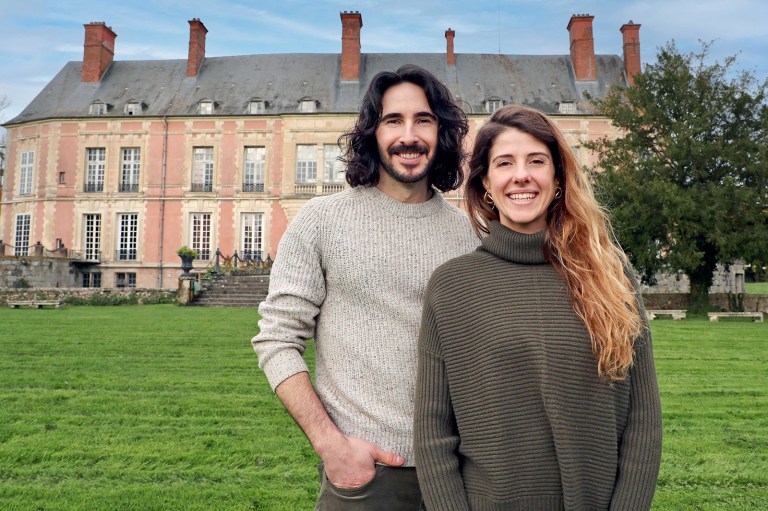Recognizing The Voice Of Your Ego
The ego is the worn-out script that plays out in our head to convince us of our unworthiness. This is coupled with recalling negative thoughts that have us believe we are less than perfect.
By ![]() Tony Fahkry
Tony Fahkry
“It is the nature of the ego to take, and the nature of the spirit to share.” — Proverb
Being mindful of the ego’s control could be the single factor that leads to our salvation.
Alternative medicine advocate and author Deepak Chopra affirmed, “If you want to reach a state of bliss, then go beyond your ego. Make a decision to relinquish the need to control, the need to be approved, and the need to judge. Those are the three things the ego is doing all the time. It’s very important to be aware of them every time they come up.”
Many people are asleep to the vice-like grip the ego has and fall victim to it because they are unaware of its influence.
The ego is the wounded and scorned child that poses a threat to a person’s self-esteem. It manipulates you into the belief of separation, which is nothing more than an impulse intended to reinforce its position.
The ego thrives on dividing you from the wholeness of your authentic self and conspires to lure you into its ways.
It is the splintered part of the soul serving to admonish you of your limitations.
The ego takes its power from identifying with the “I” of your being. Every time you affirm, “I am lazy”, “I am hopeless/incompetent”, etc., it reinforces its influence.
When this voice becomes overwhelming, it leads us further away from our soul nature.
The ego undertakes to prove your unworthiness by bringing attention to the damaged aspects of your character.
“All ego really is, is our opinions, which we take to be solid, real, and the absolute truth about how things are,” states Buddhist nun Pema Chodron.
We are complete beings, embodied in the duality of light and dark – yin and yang. The ego, however, prefers to bring attention to the darkness by reminding us of the concealed self, replete with faults and vulnerabilities. However, this is not who we are but merely a snapshot of our being.
It seeks to be heard to ensure its survival, since focussing attention on our soul nature diminishes the ego.
To find harmony, we acknowledge our unconscious or suppressed thoughts while transforming them into empowering states.
Author Mario Martinez states in The MindBody Code, “The solution to all your impasses and suffering is not to kill your ego or detach from your negative emotions. You need your ego to deal with the practical aspects of life, and all emotions are essential biological information that tells you how your body is responding to the interpretations you make about your circumstances.”
To draw attention to our authentic self, we must realize that underneath our tangled story lies our core essence which is love and light. For the ego is merely a facade masquerading as a Venetian mask to conceal the real self.
Consider this, why do we identify with the egoic voice instead of the expression of the soul? Maybe it reminds us of the parent who criticizes us, in contrast to the nurturing parent. Naturally, we are drawn to the negative parent to appease them and justify our self-worth.
“Give up all bad qualities in you, banish the ego and develop the spirit of surrender. You will then experience Bliss.” — Sri Sathya Sai Baba
The ego is the worn-out script that plays out in our head to convince us of our unworthiness. This is coupled with recalling negative thoughts that have us believe we are less than perfect.
To transform the voice of the ego, we become conscious of our limiting self-talk and examine our hurt and pain for what it actually is — a smoke screen.
We undertake this by going into silence which allows us to connect with the stillness of the inner self. Meditation practice is an effective means to connect with our soul, because it drowns out the mental chatter in place of connecting with our authentic self.
“The authentic self will never lead you to believe that you have anything to defend, prove, or be puffed up about, because your true identity is not determined by what your ego or the world has to say about you,” affirms author Dennis Merritt Jones.
Regretfully, many people distract themselves with extraneous noise that isolates them from associating with their core self. If they retreat into silence long enough, they discover beneath their thoughts is someone they don’t like.
There is a vast undercurrent of longing to be noticed within. This pure awareness is known when we shift our attention away from incessant thoughts and focus on the stillness.
It was during meditation practice one day that I reached deep into my being and experienced this breath-taking stillness. I sensed returning home and yearned to associate with this pure silence. The clue to develop a relationship with this aspect of our being is to turn down the narrative of the egoic voice.
We shouldn’t try to destroy the ego, rather to integrate it into the wholeness of our being so we are not a servant to it.
Meditation teacher and psychotherapist Loch Kelly validates this position in his book, Shift into Freedom: The Science and Practice of Open-Hearted Awareness. “What we let go of is our ego-identification. Our ego functions and ego personality become less stressed, defensive, and constricted; ego-identification is no longer experienced as the centre of who we are.”
We must avoid supporting the ego’s view of separateness, and instead highlight the principle of wholeness.
Disempowering thoughts linked to fear is our soul calling us to reconnect with our authentic nature. Accordingly, fear is a signpost pointing us to the quietness within.
So, when a disempowering thought appears, simply notice it through pure awareness. I am reminded of the phrase my six-year-old nephew learned at kindergarten – “stop, look and listen.”
So, we stop what we are doing, look within and listen attentively to the voice calling our attention. As you practice this, the less the ego will reinforce its control, so in time it rescinds into the background.
After all, if we seek to attain a state of bliss as Deepak Chopra affirms, we must reach beyond the ego while being attentive to its control. ![]()











